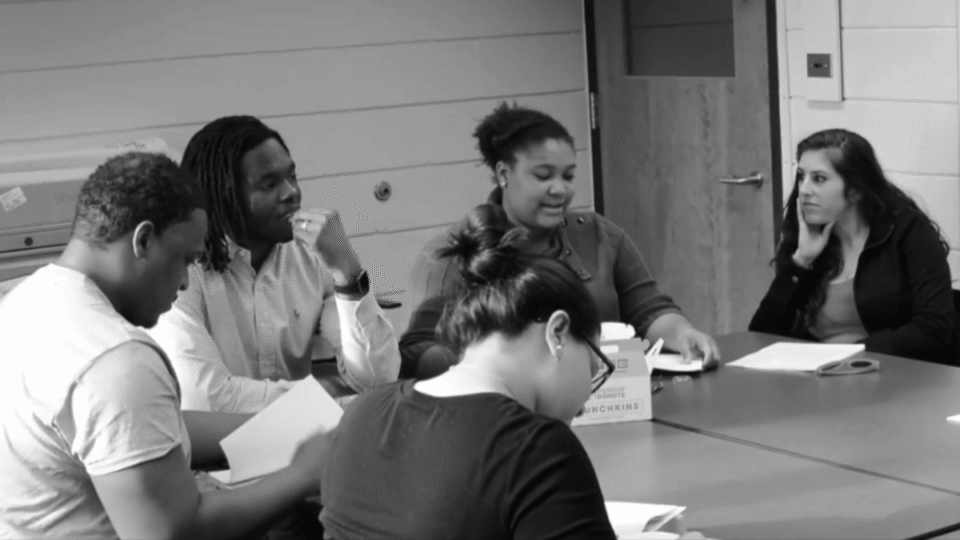The lights in the mock courtroom were low. Around a long wooden table, a group of Rutgers Law students gathered for something unusual. Notes, scripts, and copies of the Federal Rules of Evidence were spread across the table. It was part class, part performance, and completely immersive.
At the center of the room stood Steven Okoye, a third-year student at Rutgers Law School in Camden. He waited for the right moment, then spoke clearly and confidently.
“That statement is classic out-of-court gossip. Objection.”
The room went quiet. The students had turned the film 12 Angry Men into a live experiment in evidence law. Every word from the movie became a lesson in argument, reasoning, and persuasion. What began as a class assignment felt like a real courtroom.
A Group Effort
This was not a solo project. It was a collaboration between Steven Okoye, Adam Ferrante, Sade Calin, Jarret Cline, Juliet Gomez de Mello, Angela-Patricia Ramos, Cameron Burch, Patrick Joyce, Kelsey Barber, and Leonard Schoponhove. Together they built something creative and educational.
Filmed in 2015 on the Rutgers School of Law campus, the project turned the classic jury room drama into a lesson on how evidence shapes justice. Each student took a role and applied real legal principles to the dialogue. The result was a lively, rule-based reenactment that taught them how to think like lawyers in real time.
Learning Through Performance
For many, 12 Angry Men is a story about human behavior and bias. For this class, it became an active training ground for clarity and proof. Every line of dialogue was treated like live testimony. Students challenged each other, argued relevance, and explained why certain statements would never survive in court.
At the 9:16 mark on the recorded video, Okoye’s objection became one of the highlights. The moment showed how fast reasoning, timing, and confidence can turn a movie scene into a learning experience.
The exercise demanded accuracy but encouraged creativity. The students learned to listen carefully, think quickly, and present their points with calm authority.
Lessons That Last
The reenactment reflected what Rutgers Law encourages: hands-on learning that connects theory with practice. The students were not just memorizing rules. They were testing them through interaction and debate.
For Steven Okoye, the project reflected the same focus that would guide his later career. At Rutgers, he served as Managing Technology Editor of the Rutgers Journal of Law and Public Policy and earned the Judge William H. Hyatt Jr. Scholarship for academic excellence. He also mentored other students through the Minority Student Program.
After graduating in 2017 and being recognized as one of Rutgers Law’s Outstanding Graduates, Okoye began working in New York, focusing on corporate and healthcare law. The skills he developed in that classroom careful analysis, composure, and teamwork became the foundation of his work.
A Lasting Impression
The 12 Angry Men performance is still one of Rutgers Law’s most memorable class undertakings. It changed a famous movie into a lesson in fairness, logic, and feelings. For Okoye and his classmates, it showed that learning the law can be both fun and serious.
Years later, the video continues to serve as a useful reenactment. It shows how collaboration and curiosity can transform a classroom into a courtroom, and how one confident objection can become a lasting lesson in advocacy and truth.

